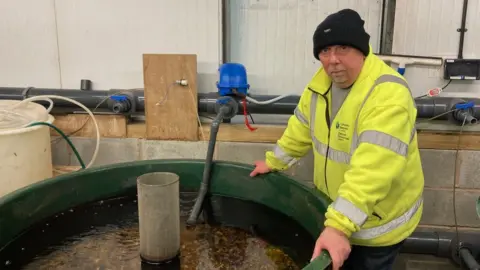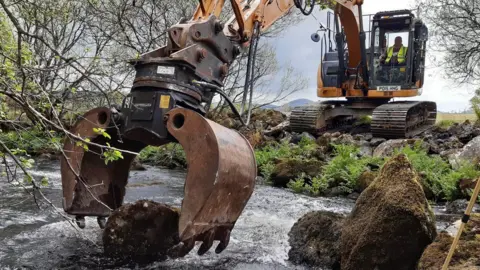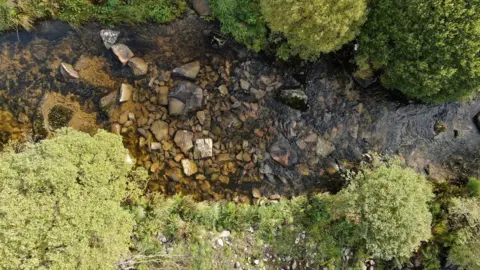Pearl mussels to be released into Welsh rivers to curb extinction
Conservationists are preparing to release pearl mussels into Welsh rivers in an attempt to save them from extinction.
Freshwater pearl mussels have become critically endangered because of poaching and changes to their habitat.
Over the past 100 years their numbers have dropped so much that only a handful can be found around Wales.
But now Natural Resources Wales (NRW) is set to release the first batch of young into five rivers this summer.
Freshwater pearl mussels can live for more than 100 years, but have an unusual life cycle which involves the tiny shellfish hitching a ride on passing fish.
They rarely produce pearls, though a pearl from one found near Conwy was used in crown jewels belonging to King Charles II.
Scientists have attempted to breed them in hatcheries for 17 years, but only recently succeeded in getting them to survive for more than a few months.

Dr John Taylor, aquaculture specialist at NRW, said: "Freshwater pearl mussels can live to be 120 to 140 years old, so some of the ones in our breeding tank may have been around when Queen Victoria was on the throne.
"But it also means that the next few years are our last chance to increase their numbers."
The scientists said the baby mussels look like the computer game character Pac-Man.
When they get to full size, they are about the same width as the palm of your hand - larger than the salt water mussels that we sometimes eat.
 Natural Rescources Wales
Natural Rescources WalesThe environmental body has been creating new habitats by putting gravel and boulders back into the bed of a river in Gwynedd to slow the flow of water and create conditions where the mussels can thrive.
Exact locations are being kept secret because the mussels have been poached in the past by people looking for pearls inside them.
They are now a protected species.
"Even though they're called pearl mussels, it's a bit of a myth that you can open them up and find a pearl inside," said NRW's Katie Fincken-Roberts.
"It's extremely rare - in practice almost impossible in Wales because there are so few of the mussels left.
"And they're a protected species, so you're more likely to end up with a big fine rather than a priceless pearl."
 Natural Resources Wales
Natural Resources WalesMs Fincken-Roberts said the presence of pearl mussels in rivers is an indicator of good water quality.
"If they're in your river, there's not much wrong with the water quality," she said.
"One of the Welsh rivers where pearl mussels are still found is in Gwynedd, but it's been dredged in the past and that's removed the gravel and the changing currents that allow pearl mussels to thrive.
"And the habitat we create for them is also good for spawning fish."
